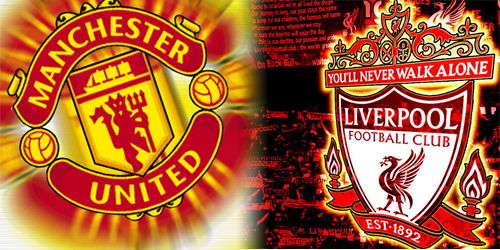

When the ‘Reds’ meet the ‘Red Devils’ this Sunday, we can be sure it won’t be a dull affair. Sharing over 100 years of history between them, filled with rivalry, hate and simply ‘Brilliant football’, this game attracts even those who aren’t inclined to watch the game. Aggression flows, blood boils and shots fired in this brilliant derby, which undoubtedly can be claimed to be the biggest in the history of the EPL, even above the likes of the Merseyside or the West London derby!
Rivalries like of these, which are not geographical, extend beyond football and which is probably why it is stronger. The origin of this rivalry lies on the opposite of the venue of Sunday’s game, Old Trafford, at Salford Quays, near the end of Manchester Shipping canal.
History:
ADVERTISEMENT
Article continues below this ad
The late 1800’s brought in industries and a sudden boom in the number of exports from the island of England. Most of these went to the commonwealth countries which England was ruling over at that period of time, earning them wholesome money. Before the Manchester Canal, Liverpool was the biggest and the most expanded port in the whole of UK.
The Manchester Canal allowed ships to bypass Liverpool ports and head straight to Manchester, thereby reducing transportation of cotton products from Manchester to Liverpool. This led to loss of jobs in the west English city, spewing hatred towards their Manchester counterparts at the turn of the century.
A simple show of how important the canal was to Manchester can be seen in the logos of Manchester United as well as Manchester City, both having a ship in their logo.
In the 70’s and 80’s both cities suffered economic decline under the Thatcher government leading to a slight mutual respect against the government. In recent times, though the battle has shifted towards which of these cities can attract the most number of tourists!
Music:
There are two things Brits hold close to their heart is their football and their music. Mancunians and Liverpudlians are no different. They have been known to give the world some of the best musicians ever, from The Beatles to Oasis. Both these cities claimed to be the music capital of the nation, though these have subsided to underground music groups now. Liverpool, in the 60’s saw bands like lla Black, Frankie Vaughan, Gerry and the Pacemakers and of course the band which produced the soundtrack for the sixties, The Beatles. The shift took place a few decades later when bands such as The Stone Roses, Happy Mondays, Joy Division and Oasis came onto the scene.
Even with the music industry not really growing in these cities, the boast of Echo arena in Liverpool and Phones4U arena in Manchester, attracting the best in music worldwide.
Football:
ADVERTISEMENT
Article continues below this ad
It’s football where the real rivalry between the clubs lie. It’s not only Liverpool and United, as Manchester City and Everton also compete for the same regional pride. But for them, it’s not considered a rivalry as both clubs have seen their heights only in recent years, whereas Manchester United and Liverpool have earned mainstream recognition, support and hatred over the centuries (right from the dawn of 20 century till date). All apart, these 4 clubs have a shared a total of 162 trophies, which is more than that of all the London clubs combined. United have won 62 major trophies, with Liverpool only 2 behind.
Both clubs have their fair share of wins as well as relegation, striving for a consistent position in the top division. The 50’s saw the ‘Busby Babes’ bloom under the great Sir Matt Busby, based on younger set of players which tragically ended due to the Munich Air Disaster in 1958.
1963 to 1967 showed stiff rivalry between the clubs as the trophy alternated between the two of these clubs. That being said, the two decades following, the 70’s and 80’s saw complete Liverpool domination under Kenny Danglish, increasing resentment among the United fans, as they strived for consistency.
ADVERTISEMENT
Article continues below this ad
The nineties, saw United spring back, under Sir Alex Ferguson as Liverpool felt Kenny Danglish’s loss, leading to the famous banter “Come back when you have 18” by the Liverpudlians. Sir Alex Ferguson did reach that milestone and overdid it winning 20 titles over a period of little over 2 decades. Though Liverpool lost the bragging rights to the domestic title, they still dominate on the European front, winning 5 to United’s 3.
This rivalry though is still as strong as ever and league position never effects the magnitude of this game, as it’s all about which city will get the bragging rights each season.
ADVERTISEMENT
ADVERTISEMENT
ADVERTISEMENT
ADVERTISEMENT

